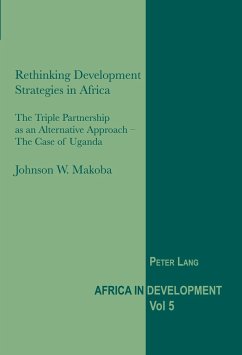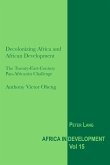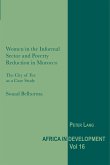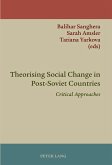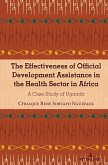The author focuses on how development-oriented non-governmental organizations (NGOs) and microfinance institutions (MFIs) are suited to the dual development process of improving the wellbeing and empowerment of the poor and other marginalized peoples (especially women) in Africa and other developing countries, focusing on Uganda. NGOs and MFIs are seen as a third approach (i.e. an alternative to state or market strategies) to achieving sustainable development and poverty reduction. The author discusses the following central issues: rethinking development strategies in Africa as a result of the failure of the state or market to deliver economic growth and poverty reduction, and the rise of the NGO sector to fill the vacuum; clarification of the on-going confusion between MFI performance and impact assessment; the inadequacy of economic reforms in Uganda to benefit the rural agricultural producers; NGOs and MFIs in Uganda as part of the development strategy and their potential to spur development; the commercialization of MFIs and its implications; lessons from successful MFIs in Uganda and globally; and an analysis of how NGOs and MFIs working together with the public and private sectors (in a triple partnership) can achieve sustainable development and poverty reduction in Uganda and other African countries.
«[...] a thoughtful study sure to provoke debate.» (Professor Gay Seidman, University of Wisconsin-Madison)
«This is a book for everyone - academics and policy practitioners alike - who take an interest in [...] the next generation of development strategies in Africa [...]» (Distinguished Professor Emeritus Goran Hyden, University of Florida)
«The book is a must read not only for academics and students working in the field but also for policy makers, aid workers, and business leaders who seek to bring about a positive impact not just for their organizations but for the people affected by their actions.» (Julia Büchele, African Studies Quarterly 13, 2013/4)
«This book represents a thoughtful study of Africa's past, its present development and provokes useful debates on the future paradigms and models for an appropriate and sustainable development of the so-called Dark Continent. The book is, therefore, very useful for academics, professionals, development activists andpolicy makers taking little or deeper interest in the future of Africa's development. Even microfinance practitioners can have an overview of how the industry is faring in the continent. For the AU and NEPAD, the book comes as an additional impetus to their efforts of promoting African-led development. Students of African studies will find this book quite rewarding.» (Roland Azibo Balgah, Quarterly Journal of International Agriculture 52, 2013/1)
«This is a book for everyone - academics and policy practitioners alike - who take an interest in [...] the next generation of development strategies in Africa [...]» (Distinguished Professor Emeritus Goran Hyden, University of Florida)
«The book is a must read not only for academics and students working in the field but also for policy makers, aid workers, and business leaders who seek to bring about a positive impact not just for their organizations but for the people affected by their actions.» (Julia Büchele, African Studies Quarterly 13, 2013/4)
«This book represents a thoughtful study of Africa's past, its present development and provokes useful debates on the future paradigms and models for an appropriate and sustainable development of the so-called Dark Continent. The book is, therefore, very useful for academics, professionals, development activists andpolicy makers taking little or deeper interest in the future of Africa's development. Even microfinance practitioners can have an overview of how the industry is faring in the continent. For the AU and NEPAD, the book comes as an additional impetus to their efforts of promoting African-led development. Students of African studies will find this book quite rewarding.» (Roland Azibo Balgah, Quarterly Journal of International Agriculture 52, 2013/1)

